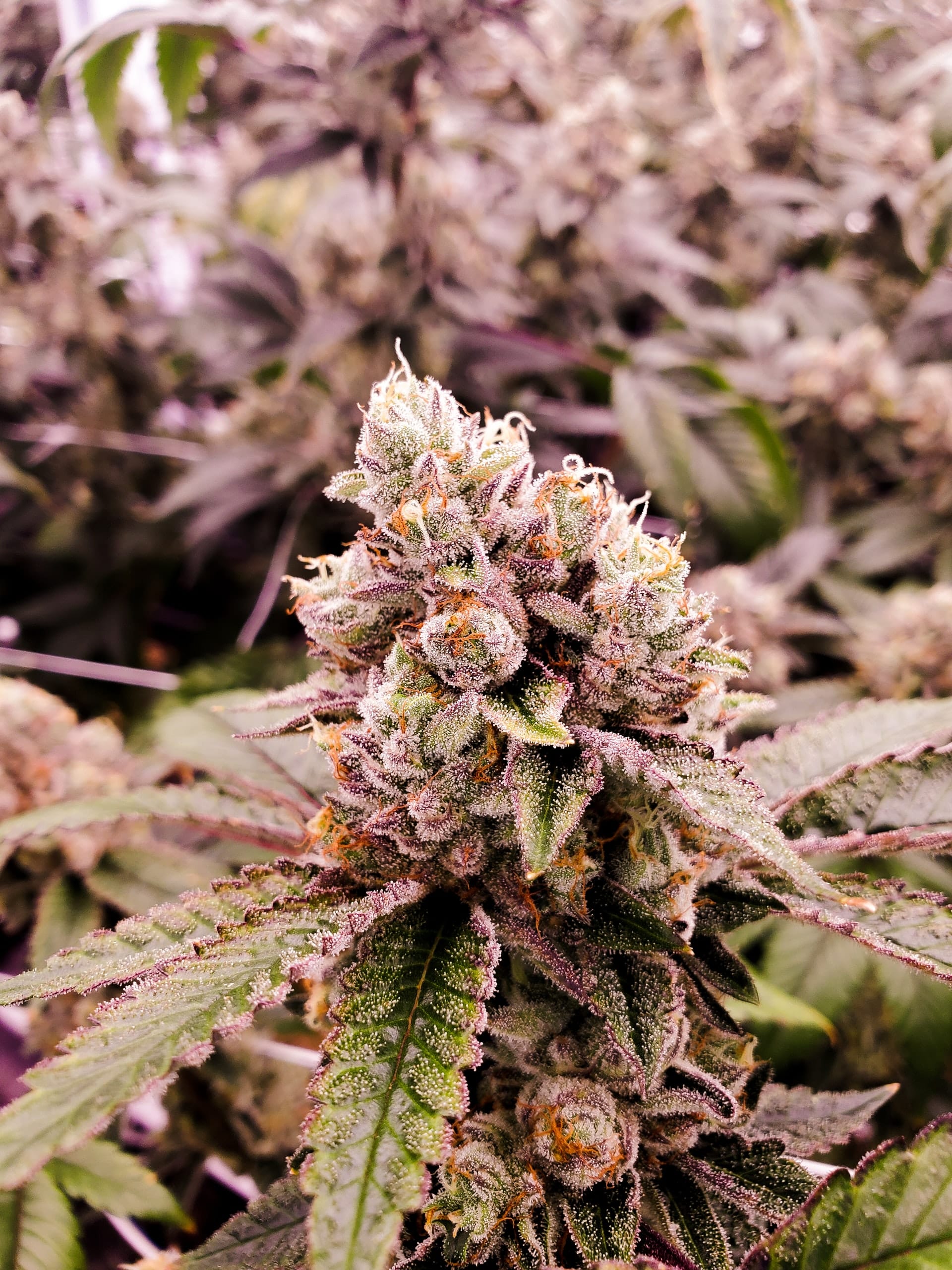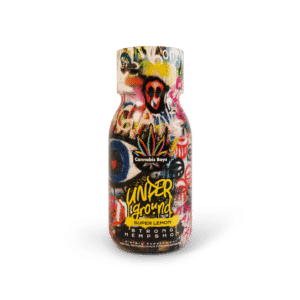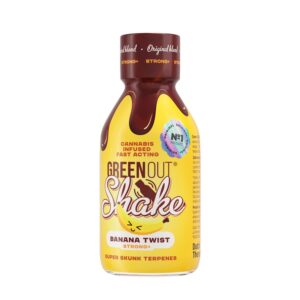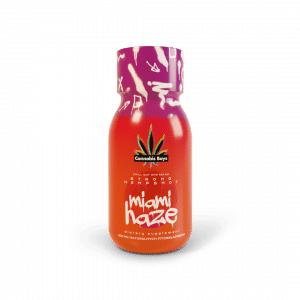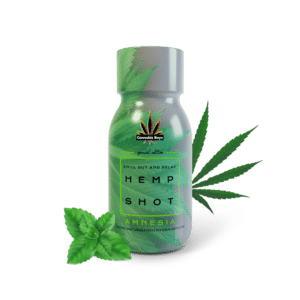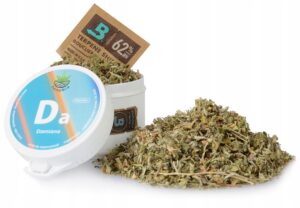CBG (cannabigerol) is a cannabinoid found in hemp plants. Unlike THC and CBD, CBG has no psychoactive effects. However, it does have some potential therapeutic benefits, such as reducing inflammation and pain.
CBG is believed to enter
interact with the body's endocannabinoid system, which is involved in regulating a wide variety of functions, including mood, appetite, pain and inflammation. While more research is needed to understand the full range of CBG's potential health benefits, it shows promise as a potential treatment for a variety of conditions. CBG is found in very small amounts in most cannabis varieties. However, there are a few varieties that have higher levels of CBG.
These varieties can be hard to find, but you may want to look for them if you're interested in trying CBG for its potential health benefits.
When buying CBG products, it is important to pay attention to the label. Make sure you buy a product that contains pure CBG and no other artificial additives. Also be sure to check the dosage to make sure you're taking the right amount.
CBG has many potential health benefits, including reducing inflammation, relieving pain and reducing anxiety. It can also help improve sleep and appetite. If you're interested in trying CBG for its potential health benefits, talk to your doctor first to see if it's right for you.
What is CBG?
CBG, or cannabigerol, is a cannabinoid found in the hemp plant. It is similar to CBD and THC, but it does not have the same psychoactive effects as THC. This means that you will not feel "high" after taking CBG.
CBG works by binding to receptors in your body called cannabinoid receptors. These receptors are found in the brain and throughout the body. When CBG binds to these receptors, it can help reduce inflammation, pain and anxiety. It can also help improve sleep and appetite.
The potential health benefits of CBG are still being explored. So far, research suggests that CBG may be helpful in treating a number of conditions, including:
- Inflammation
- Pain
- Anxiety
- Sleep disorders
- Appetite disorders
CBG is available in various forms, including oils, tinctures, capsules and topical creams. CBG can also be found in some strains of marijuana. However, because CBG is a relatively new compound, finding products that contain it can be difficult.
CBD and CBG are cannabinoids, compounds found in cannabis plants. Both CBD and CBG interact with the body's endocannabinoid system, which helps regulate various functions, including:
- Appetite
- Mood
- Pain perception
- Inflammation
- Dream
However, there are several key differences between CBD and CBG.
First, CBG is a non-toxic compound, meaning it does not induce the "high" associated with marijuana use. In addition, research suggests that CBG may be more effective than CBD in treatment certain conditions, such as inflammation and pain. Finally, because CBG is a newer compound, however, there is less research on its potential benefits and side effects. Therefore, more research is needed to determine the safety and efficacy of CBG.
So far, the available evidence suggests that CBG is a promising compound with a wide range of potential health benefits. However, more research is needed to confirm these effects and to establish dosage recommendations. If you're interested in trying CBG, be sure to talk to your doctor first to make sure it's safe for you.
Unlike THC, the most well-known compound found in cannabis, CBG does not have psychoactive effects. This means it won't make you feel "high" However, early research suggests that CBG may have a number of potential health benefits, including relieving pain and inflammation, reducing anxiety and improving appetite.
CBG belongs to a class of compounds called cannabinoids. Cannabinoids are compounds that interact with the body's endocannabinoid system (ECS). The ECS is responsible for regulating several important functions, including sleep, appetite, mood and pain sensation. CBD and THC are two other known cannabinoids.
CBG is sometimes referred to as the "mother" or "mother cell" of cannabinoids
because it is believed to be the precursor compound from which other cannabinoids, such as CBD and THC, are formed. CBG is found in very small amounts in most marijuana strains. It is estimated that CBG accounts for less than 1% of the total cannabinoid content of a given cannabis plant.
The low concentration of CBG in most cannabis varieties is due to its rapid conversion to other cannabinoids, such as CBD and THC. This process is known as biosynthesis. Biosynthesis is a chemical reaction that occurs when enzymes convert one compound into another.
In the case of CBG, it biosynthesizes to convert into other cannabinoids, such as CBD and THC. The reason why CBG is converted into other cannabinoids is not fully understood, but it is believed to be the plant's way of regulating the production of these compounds.
CBG has been shown to have many potential therapeutic benefits. For example, studies have shown that CBG can help reduce inflammation and pain. It has also been shown to have antibacterial and antifungal properties.
Despite its potential therapeutic benefits, CBG is not currently used in medicine due to its low concentration in most hemp varieties. However, there is growing interest in developing CBG-rich hemp varieties. Such varieties could potentially be used to treat a variety of conditions.
Like other cannabinoids, CBG interacts with the body's endocannabinoid system (ECS). The ECS is a network of receptors and chemicals that play a role in many physiological processes, including pain, inflammation and mood.
Although CBG is present in most cannabis strains in very small amounts (usually less than 1%), there is growing interest in its potential therapeutic benefits. For example, studies have shown that CBG can help reduce inflammation and pain. It has also been shown to have antibacterial and antifungal properties.
Despite the potential therapeutic benefits
CBG is not currently used in medicine due to its low abundance in hemp varieties. However, breeding programs are underway to create new hemp varieties with higher CBG content.What is CBD?
CBD is a cannabinoid found in both hemp plants, as well as marijuana. Unlike THC, CBD does not have a psychoactive effect. Instead, it is believed to have therapeutic benefits, including reducing inflammation and pain. CBD is currently being studied for potential use in the treatment of various medical conditions, including epilepsy, anxiety and cancer.
So what is the difference between CBG and CBD?
Both cannabinoids offer potential therapeutic benefits, but act in different ways in the body. CBG is thought to directly affect the endocannabinoid system, while CBD indirectly affects endocannabinoid receptors. In addition, CBD is more prevalent in hemp varieties than CBG. However, breeding programs are underway to create new hemp varieties that are higher in CBG.
So if you're looking for a cannabinoid with potential therapeutic benefits, CBG or CBD may be worth considering. However, more research is needed to understand the full effects of both cannabinoids. CBG, or cannabigerol, is a cannabinoid found in the cannabis plant. It is believed to have potential therapeutic benefits, but more research is needed to understand its full effects.
CBG is present in very small amounts in most cannabis varieties, but breeding programs are underway to create new varieties with higher concentrations of this cannabinoid. CBD, or cannabidiol, is another cannabinoid found in hemp.
Unlike CBG, CBD does not directly affect the endocannabinoid system. However, it indirectly interacts with endocannabinoid receptors and is believed to have potential therapeutic benefits. CBD is more prevalent in hemp varieties than CBG, but both cannabinoids may be worth considering for their potential health benefits.CBG and CBD are cannabinoids found in hemp.
CBG is found in low concentrations in most cannabis varieties, but new varieties with higher concentrations of this cannabinoid are being developed. CBD does not directly affect the endocannabinoid system as CBG does, but indirectly affects endocannabinoid receptors. CBD is more prevalent in hemp varieties than CBG, but both cannabinoids may have potential therapeutic benefits.
CBG is a cannabinoid found in the cannabis plant. It is similar to CBD and THC, but does not produce the psychoactive effects that THC does. CBG is not intoxicating, which means it won't make you feel "high "or "stoned" It does, however, interact with the endocannabinoid system, which means it can produce some therapeutic effects.
CBG is being studied for its ability to treat a variety of conditions, including:
- Pain relief
- Inflammatory conditions
- Anxiety
- Depression
- Nausea and vomiting
- Muscle cramps
- Seizures
- Cancer
in low concentrations in most marijuana strains, but new strains with higher concentrations of this cannabinoid are being developed. CBD does not directly affect the endocannabinoid system as CBG does, but indirectly affects endocannabinoid receptors. CBD is more prevalent in hemp varieties than CBG, but both cannabinoids may have potential therapeutic benefits.
Currently, there is no direct evidence that CBG can directly treat any specific conditions. However, early research suggests that it may have potential therapeutic benefits in a number of conditions, including:
- pain relief
- reducing inflammation
- treatment of anxiety and depression
- stimulation of appetite
- slowing the progression of Huntington's disease
- glaucoma treatment reducing multiple sclerosis symptoms
CBD, on the other hand, does not bind directly to cannabinoid receptors. Instead, it activates or inhibits other compounds in the body known as endocannabinoids. This indirect action makes CBD more difficult to study than CBG.
At this point, further research is needed to confirm the potential therapeutic benefits of CBG and CBD. However, initial research suggests that these compounds may offer a range of health benefits.
CBG works by interacting with the body's endocannabinoid system (ECS). The ECS is a network of receptors and chemicals that help regulate many important functions in the body, including mood, sleep, appetite, inflammation and pain.
CBG is believed to have many potential health benefits. Some of these include reducing inflammation, relieving pain, reducing anxiety, improving sleep and appetite. However, more research is needed to confirm these potential health benefits.
